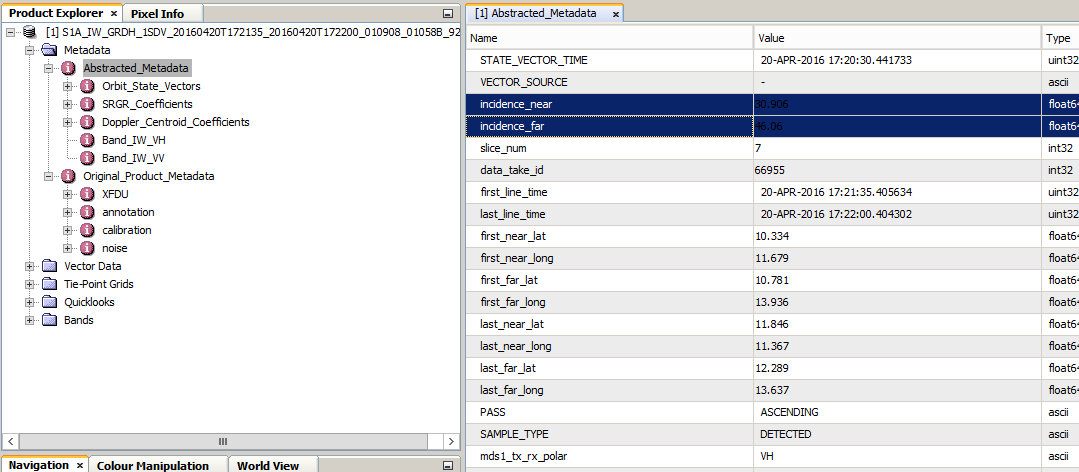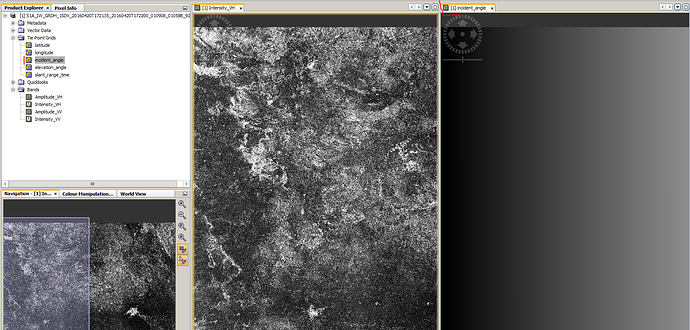incidence angle is dependent from the distance to the sensor.
So there is always a difference between the far and the near range.:
You find it under Abstracted_Metadata:
If you want the incident angle of a specific pixel, you can open it as a Tie-Point-Grid:

